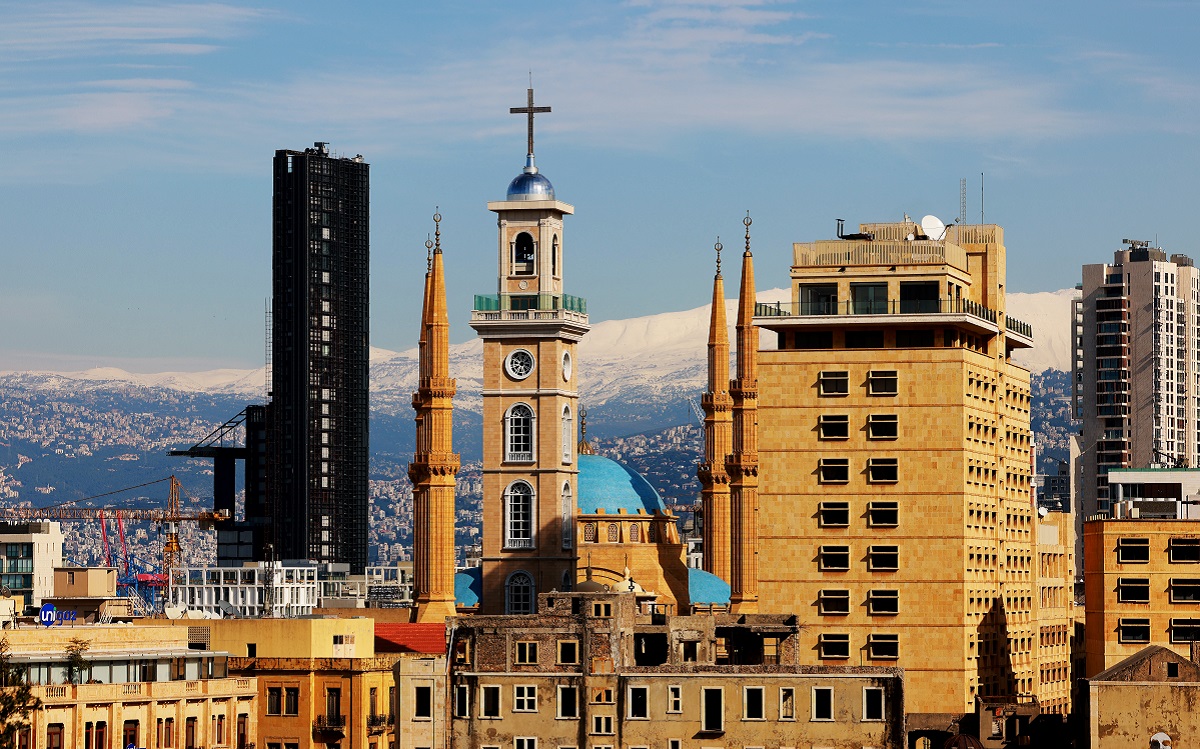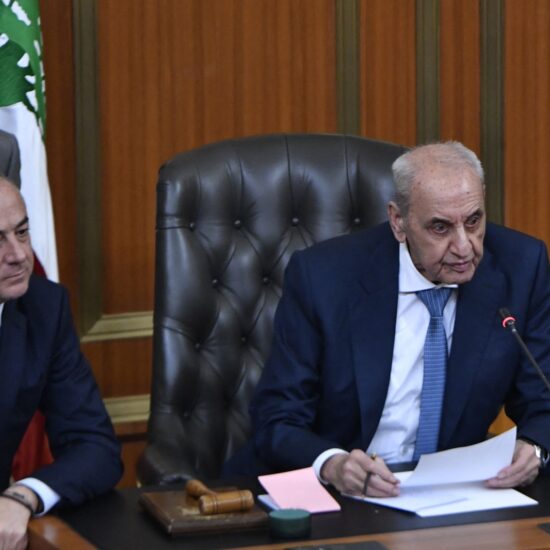
The future of this country is not in the hands of absolutists coming from hard-left ideology or a prejudiced far-right.
There is, thankfully, enough room in the middle. Including the immensely frustrated yet reasonable protestor-turned-politician. Driven by moderation rather than extremism, and willing to reach ‘across the aisle’ and work with the older guard in a shared pursuit. Entering parliament, together, and changing Lebanon for the better.
That includes a focus on economic welfare, social justice, and an end to impunity. And in tandem, a long-avoided chamber that would preserve our plurality – a senate that lets our mosaic breathe without threat or anxiety.
Championing secularism and demonizing sectarianism is short-sighted. Lebanese should not be afraid of adopting something new if that, in fact, works better in the end. But long before that, we need to give what we built together a chance to work.
Taif Agreement & March 14
Two of three pillars of the Taif Agreement (an end to Syria’s army presence that took fifteen rather than three years to happen; a senate; and militia disarmament) were never implemented.
Reform-oriented parties (pre and post-October 17) should adhere to those missing steps. Yet both are not possible without Hezbollah’s disarmament.
The tendency among many in October 17 to quickly admonish March 14 leans on false narrative. A movement with a noble cause – and a commitment to Lebanon’s independence – drove over a million of Lebanese to the streets.
Syrian forces departed five weeks later.
The reason March 14 failed was not self-sabotage. Samir Kassir was March 14. As was George Hawi. The liberal left, rather than the illiberal fringe, was central to calls for decency, dignity, and restored sovereignty.
Political assassinations eliminated its cross-communal leadership and destroyed that movement’s goal of full sovereignty, which meant addressing Hezbollah’s weaponry.
Equating March 14 with March 8 throws principles out the window in favor of a shallow popularity vote. One that October 17 will lose. And irrespective of the mutated March 14 that emerged to Hezbollah’s favor, failing to stand with Lebanese that tried to reclaim the state after Syria’s withdrawal is pandering to the wrong side.
And proactively ignoring our history.
Cairo Agreement, 1969
Well before the end of the civil war, condemn what tore us apart.
Do not simply say we want ‘sovereignty’, ‘disarmament’ and ‘neutrality’ and leave the argument there. That is where campaigning hits a wall and turns from an issue impacting all of us into sloganeering and soundbites robbed of policy and agency.
Instead, accept that the Lebanese have been forced into a reality beyond their control. Local reformers have limited capabilities at tackling this problem, one that extends well beyond Lebanon’s borders. We want to recreate the conditions that allow the Lebanese to determine their destiny. And that begins by taking this cause to diplomacy.
Communicating through campaigning is difficult by design. But when messaging is dictated by the margins, moderates should stick to embracing rather than turning against earlier attempts at reform.
Demand a deal with Iran.
And not one at Lebanon’s expense.
A fundamental shift that sees an end to Iran’s grip. An assertive call for a seat at the table. At every opportunity when countries with leverage are willing to talk to Iran, we must make our country’s case heard.
This is where too many within civil society shy away from that burden. The current regime and its representatives (the paralyzed situation we live in) cannot demand a new relationship with Iran. Rather, Iran’s actual ambassador to Lebanon is the same as our imposed representative to Iran: Hezbollah.
October 17 must step in.
Pick up from where other reformers – some that paid the ultimate price – left off. One template is Mohamad Chatah’s Open Letter to Tehran. I released my own follow-up and Open Letter last year. The conditions we, as Lebanese, demand to recreate standard state-to-state relations.
Negotiations, instead of endless talking for the sake of talking.
And even if all of this is beyond our limited control, at least apply appropriate language and lexicon so that the regime and the opponents’ opponents do not win the local debate.
National Pact, 1943
A deal with Tehran prevents two other factors from bringing us back to Damascus.
Assad wants his earlier middleman role in Lebanon, and reemerge as Iran’s local opponent on his terms. We must avoid that situation at all costs – a return to the 1990s that destroyed our post-civil war politics.
The second is an issue that involves sectarian anxiety. The majority of October 17 rightfully did not call for the return of Saad Hariri to power, or for that matter look to Bahaa Hariri (or Fouad Makhzoumi) to compensate for a community’s drawback from politics.
Yet there is obvious fallout from the ‘Sunni void’.
It makes no sense to confront Lebanon’s ‘social pact’ or demand an end to the ‘system’ without addressing that insecurity. Challenge the boycott that mirrors 1992’s Christian withdrawal from politics. Excuse the sectarianism here, but whether real or imagined, the majority of Sunnis feel they are paying a price not shared by other communities. As did most Christians when Michel Aoun was forced into exile and Samir Geagea imprisoned.
All the more reason to pave the way for a deal that lets our geography breathe without playing a battlefield role. The whole point is to get to a reality on the ground that allows for reform. And end a familiar pattern of nominal opposition that turns communal leaders into Hezbollah’s preferred president, prime minister and parliament speaker.
And when they challenge the status quo, their primary targets.
Communicating through campaigning is difficult by design. But when messaging is dictated by the margins, moderates should stick to embracing rather than turning against earlier attempts at reform.
And find a common narrative.
Ronnie Chatah hosts The Beirut Banyan podcast, a series of storytelling episodes and long-form conversations that reflect on all that is modern Lebanese history. He also leads the WalkBeirut tour, a four-hour narration of Beirut’s rich and troubled past. He is on Facebook, Instagram, and Twitter @thebeirutbanyan.
The opinions expressed are those of the author only and do not necessarily reflect the views of NOW.







